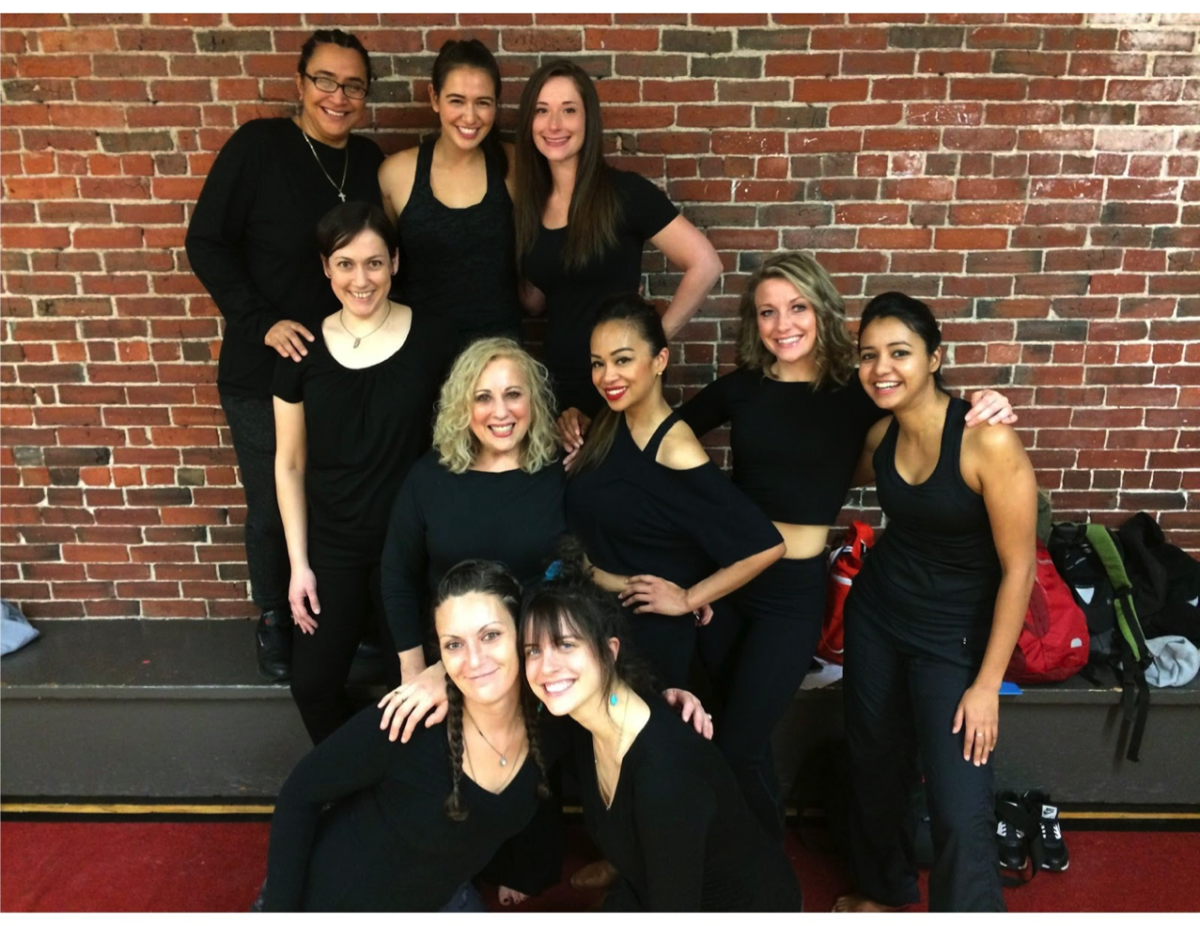I come out stronger in the end when I can walk through fear.
-Moving Stories performer
This past weekend, the Moving Steps Foundation showcased its first performance, “Moving Stories,” at the Dance Complex in Central Square, Cambridge. The Moving Steps Foundation is a nonprofit founded in 2010 with the mission of using dance to help formerly-incarcerated women with challenges of reentry, such as preventing recidivism and addressing addiction, with the larger goal of combating injustice within the system of mass incarceration. The Moving Steps Foundation was begun by Dr. Adrianne Tabet, who has a PhD in medical and psychological anthropology, specializing in gender construction and transformation. She first began her volunteerism by offering dance classes for women incarcerated in the South Middlesex Correctional Center as part of a program called Dance Leela. Dance Leela participants now have the opportunity to join the outside performances with Moving Steps once released from prison.
As the prison industrial complex and opioid crisis are among the most pressing and controversial challenges currently facing American society, “Moving Stories” is incredibly significant as a performance that shares the stories of previously incarcerated women and former addicts in a two-hour performance that traces their journeys from the beginning of their addictions to their recovery. The Moving Steps Foundation and its latest endeavour presents a unique and necessary platform for telling the story of incarceration through a female lens, made all the more important by the huge rise in the number of incarcerated women that has taken place over the past several decades—an increase of more than 700 percent between 1980 and 2014, according to The Sentencing Project.
“Moving Stories” takes the form of an intimate cabaret that blends spoken word, jazz singing and dance into a cohesive narrative of the performers’ own lives and the obstacles that they have faced, including difficult childhoods, prison experiences and drug usage. Moving Steps founder Dr. Tabet, executive director Jenny Herzog, choreographer Chavi Bansal and story coach Meghann Perry also took the stage with the recovering dancers. Bansal, who specializes in Kalaripayatt (Indian martial arts), yoga, meditation and Indian and modern dance, and Herzog, who specializes in jazz and tap dance, choreographed many of the dance numbers alongside the women members to mix professional dance technique with the real stories and emotions of the performers.
“Moving Stories” consisted of a two-act performance followed by a question-and-answer session with the performers, directors and choreographers. The first act had two parts, Experience and Strength, and covered the women’s struggles and eventual success in finding the strength to combat addiction. Earlier stages of this transition were translated to dance through routines that were choreographed to songs such as the Weeknd’s “Dark Times,” later making way for more triumphant numbers like Beyonce’s “Formation.” The second act, titled Hope, focused on recovery, with routines choreographed to songs including Sia’s “The Greatest” and Alessia Cara’s “Scars to Your Beautiful.”
During the question-and-answer session, the performers discussed the energy that having an audience gave them, as well as the connections and healing that telling their stories enhanced. In response to an audience question asking the women what they would like to see changed in prison institutions, one member responded that systems of incarceration need “more types of treatment and a greater variety of options” that aren’t just some “sporadic 12-step fellowship.” The main problem, the women highlighted, was that “prison is not geared toward recovery.” As the women described, the Moving Steps “community of support” and the “Moving Stories” performance allow each of them to “define meaning to their stories to become a stronger person.” More information about the Moving Steps Foundation can be found online at http://www.movingstepsfoundation.org/.





